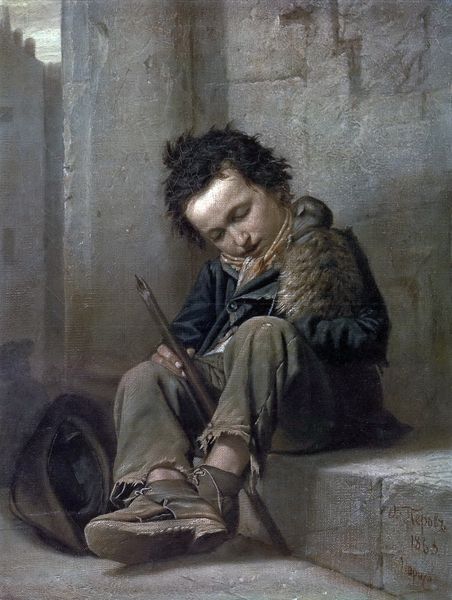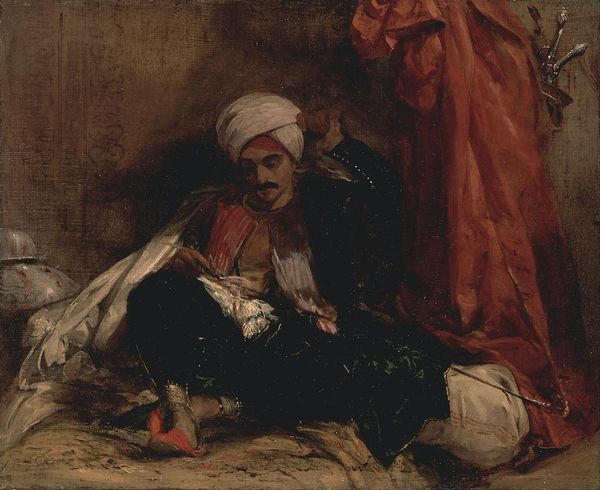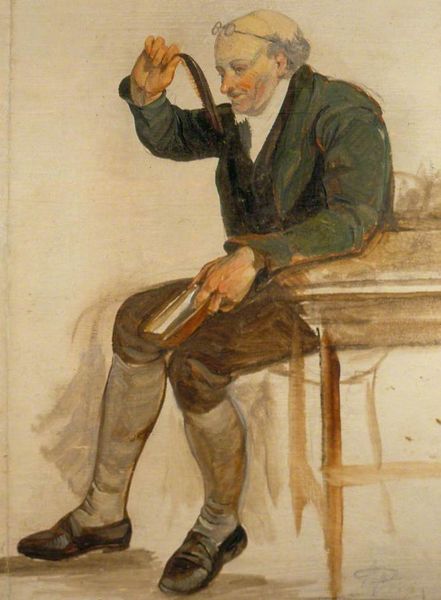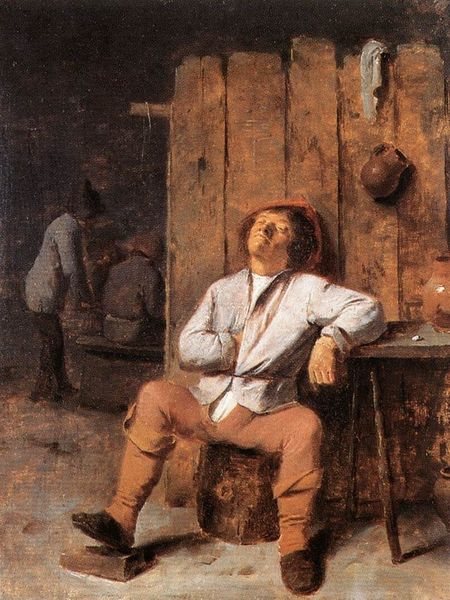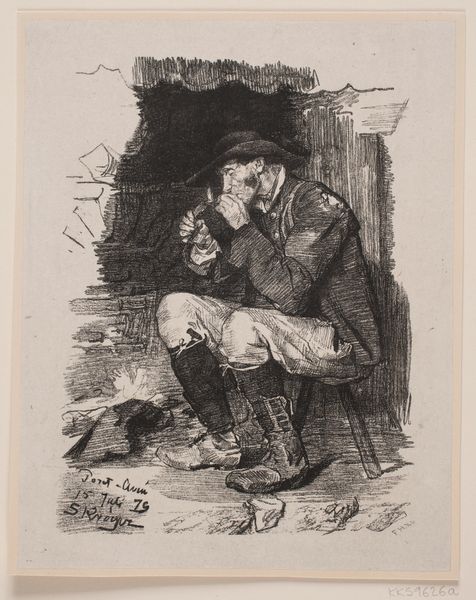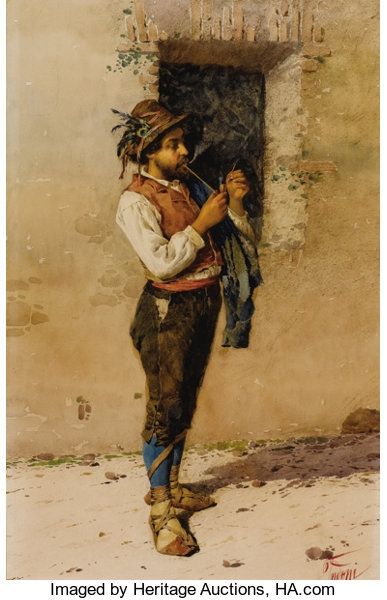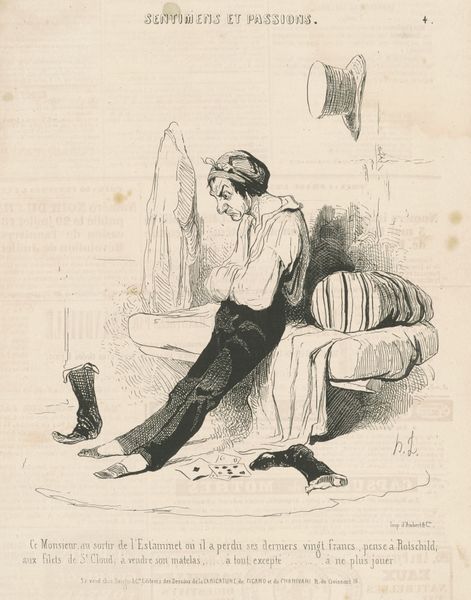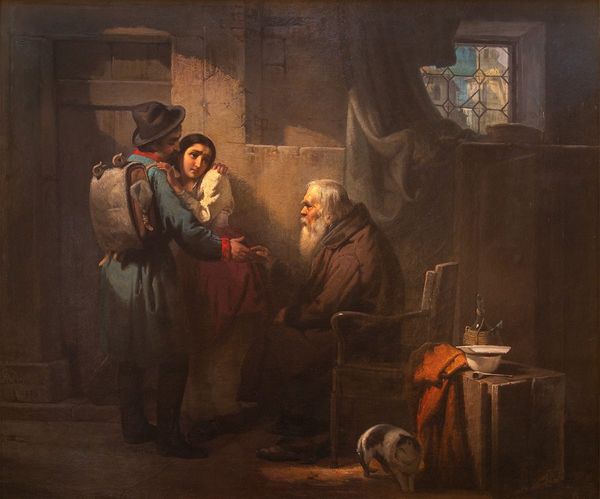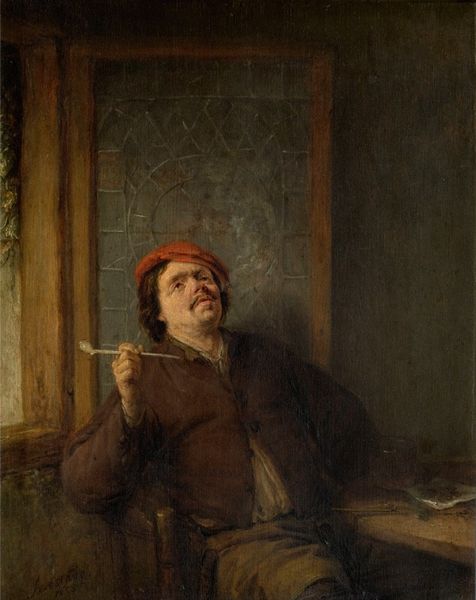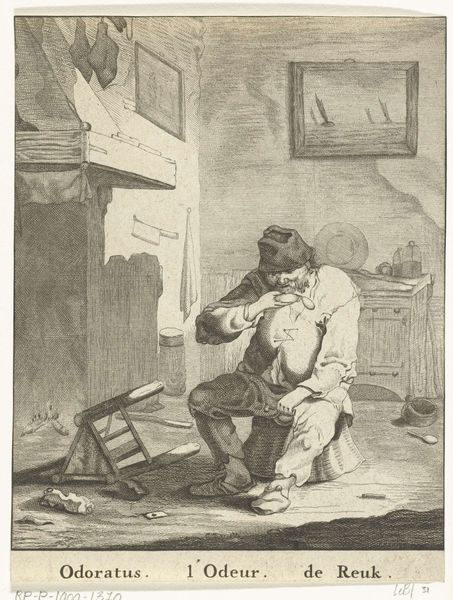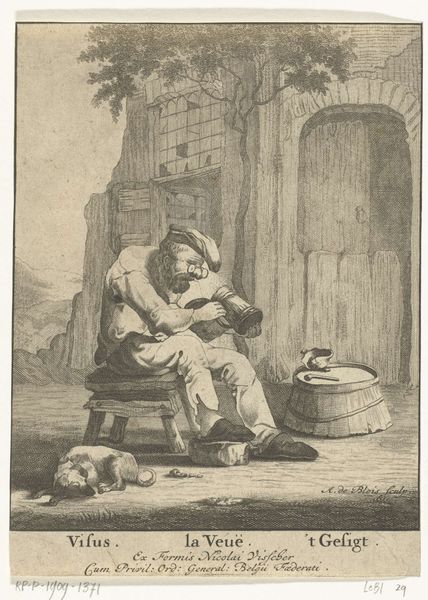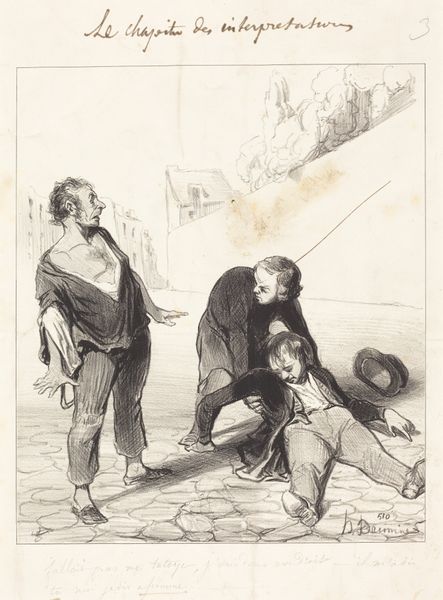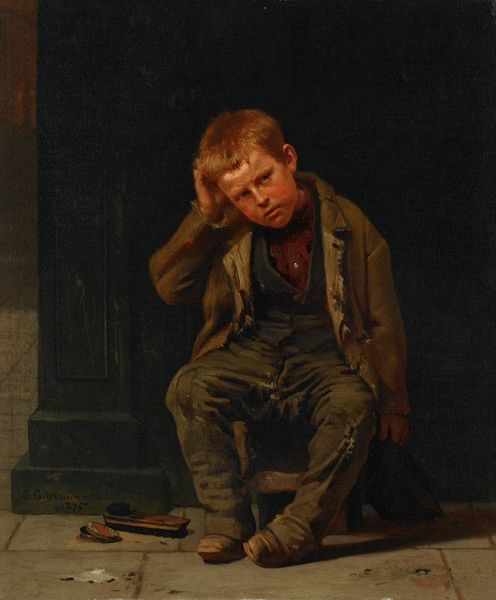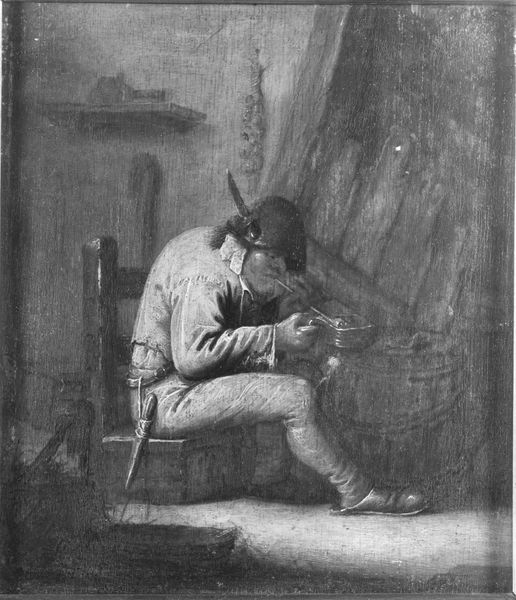
Dimensions: 30.5 x 25 cm
Copyright: Public domain
Curator: Here we have Vasily Perov’s, “Organ Grinder,” created in 1863. It resides in the Tretyakov Gallery in Moscow. Editor: Well, immediately, I'm struck by the somber mood. The palette is muted, and the figure seems lost in thought, almost melancholic. There's a strange sense of stillness hanging over everything, like the music’s stopped. Curator: Absolutely, Perov was known for his Realist depictions of social issues. The organ grinder wasn't just a street musician; he represented poverty and marginalization within rapidly changing urban landscapes during that era of Russian social reform. The backdrop isn't romantic or picturesque; it’s a crumbling wall, which speaks volumes. Editor: True. I keep getting drawn back to the monkey perched atop the organ. He's such a peculiar little detail – a sort of miniature jester presiding over the scene. I wonder if Perov intended some kind of symbolism there? The monkey mimicking human actions, perhaps highlighting the absurdity of the organ grinder’s situation? Curator: That's astute. Consider, too, that genre painting like this wasn’t simply about depicting everyday life. It was often about critiquing the social order, highlighting the disparities in wealth and opportunity that shaped individual destinies, particularly after the emancipation of the serfs in 1861. Where does one go after that? Editor: Yes, there’s this incredible humanity to him. He's not some faceless stereotype; there is vulnerability, a quiet dignity in his posture. Like the painting really stops and makes us look—demanding we acknowledge that experience, the economic hardships and struggles faced by people during this period of social transformation in Russia. I appreciate it, because that empathy hits hard. Curator: Precisely, it reflects his profound awareness of the seismic shifts occurring in Russian society at the time. By placing this figure in such a realistic and emotionally charged context, Perov challenged the prevailing norms of academic art, making social critique through representation. Editor: There's something quietly powerful about that choice to depict him not playing, not performing, but simply existing. It almost asks the viewer, what happens when the music stops? Who cares about him then? Curator: It asks important questions, indeed. Perov’s "Organ Grinder" provides an enduring reflection on class, survival, and human resilience during a pivotal moment in Russian history. Editor: Definitely leaves you pondering. Gives me something to mull over.
Comments
No comments
Be the first to comment and join the conversation on the ultimate creative platform.
